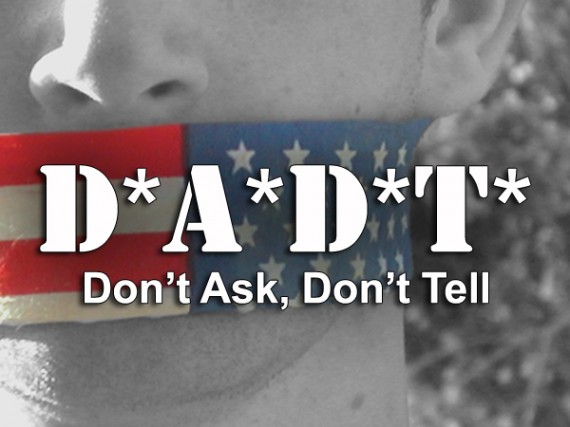Robert Gates: Opponents Of Gays In The Military Won’t Be Allowed To Opt-Out
Outgoing Secretary of Defense Robert Gates had a blunt message for Marines in Afghanistan, a service member who may be opposed to gays serving openly in the military won’t be allowed to opt-out of their military service:
FORWARD OPERATING BASE DWYER, Afghanistan (Reuters) – Defense Secretary Robert Gates bluntly told Marines on Sunday that they won’t be able to opt out of their enlistment just because they disagree with a government decision to end a ban on gays serving openly in the military.
Gates, who is on a tour of Afghanistan to bid farewell to the troops before stepping down at the end of the month, was quizzed by a Marine sergeant about the controversial policy during a question and answer session at a base in southwestern Helmand Province.
(…)
“Sir, we joined the Marine Corps because the Marine Corps has a set of standards and values that is better than that of the civilian sector. And we have gone and changed those values and repealed the ‘Don’t Ask, Don’t Tell’ policy,” the sergeant told Gates during the question and answer session.
“We have not given the Marines a chance to decide whether they wish to continue serving under that. Is there going to be an option for those Marines that no longer wish to serve due to the fact their moral values have not changed?” he asked.
“No,” Gates responded. “You’ll have to complete your … enlistment just like everybody else.”
“The reality is that you don’t all agree with each other on your politics, you don’t agree with each other on your religion, you don’t agree with each other on a lot of things,” he added. “But you still serve together. And you work together. And you look out for each other. And that’s all that matters.”
Gates is, of course, absolutely correct here. With the exception of plainly illegal orders, a soldier does not get a choice of which orders they are going to follow and which ones they aren’t. And, they don’t get to leave the military earlier just because their commanders have made a decision they might disagree with. When their current enlistment is up, they can choose not to re-enlist, that’s their choice. However, I can’t help but think that the military won’t be harmed all that much by losing service members who can’t find it in themselves to treat their follow soldiers equally.
Via Twitter


Cue the wingnuts in 5…4…3…2…1….
Kind of a scary statement, especially coming from someone we have trained to be a killing machine.
So, anjin-san, would you say your standards and values are better than the corps’?
Another thing, Marines aren’t taught to killing machines. Machine operation is dependant on something else. Marines are taught to kill, but to also use judgement.
I would say that that military answers to our civilian CIC & DefSec, period. No discussion. And I make no claim that my values are better than anyone else’s. I do get nervous when someone else says theirs are better than mine. I will say that I am probably more than twice as old as the average Marine and hopefully have a more seasoned and informed perspective.
Semantics. I don’t question that Marines use judgement. I do question the judgement of this Marine.
Only within a certain context. They certainly are not allowed to exercise judgement as to whether it is right and proper or moral to be engaging in warfare against a particular enemy. One expects a Marine to exercise judgement about whether to fire upon someone who may in fact be a civilian non-combatant. But they are not allowed to exercise judgement about firing upon what the government defines as combatant enemies. That is where the “killing machine” term comes into play (in common parlance – I am not trying to put words in anjin-san’s mouth here).
The term had some currency back in the mid-20th century when the government decreed that the North Vietnamese and Viet Cong were enemies of America and war would be waged against them. The people of the United States rose up against that decision of our government and eventually brought the war to an end. Individual Marines (and all others in the military) did not have the right to question their orders on that scale, but were obliged to carry out that war.
Of course they used judgement about not murdering innocent villagers (most of the time), or whether to kill or capture particular combatants. They had no choice however about whether or not to wage the war.
Anyone who believes in “moral values” in the US Military should be in completely in favor of the repeal of DADT. Admiral Mike Mullen testified before Congress over a year ago for the full repeal of DADT in which he said that it is about honesty and openess about which our Armed Forces are supposed to be about. Admiral Mullen said “it is about INTEGRITY, theirs as an individuals, ours as an institution.” Enough said.
I believe that most Admirals and General officers support controversial policies because the “Boss” said they would. Whether they believe in the policy or not they keep to themselves.
In light of this openness with the repeal of DADT, is the new policy: We will ask and you will tell?